On the 28th August 1955, the Sydney Sun Herald reported that the rock-‘n-roll dance music craze sweeping America would soon become all the rage in Australia, too.
The Sun Herald had warned that while the new genre of music was popular with teens, there were concerns among adults that the lyrics and rhythm of rock-‘n-roll music prompted immorality, degeneration and juvenile delinquency among the younger generation, with police in some American cities banning the music altogether. Even the dancing associated with rock-‘n-roll was a cause for concern, described as “hysterical hopping and abandon,” that made the Charleston of the twenties and the swing of the thirties look like a kindergarten ring-a-ring-a-rosy.
The Sun Herald’s prediction would turn out to be correct. On the 5th of July 1958, Johnny O’Keefe was the first Australian act to make the Top 40 with a rock-‘n-roll record, “The Wild One (Real Wild Child.)” Like the US, moral panic was tied to rock-‘n-roll in Australia, too, and Parramatta has it’s own story to tell about young people fighting for the right to rock and roll.
Around the same time that “The Wild One” made the Top 40, Johnny O’Keefe had performed five concerts at Granville and Parramatta Town Halls. On the 6th of August 1958, the headline of the Cumberland Argus read that the “rock-‘n-roll king” had been banned in Parramatta. Despite about 3000 teenagers being in attendance at his shows, when his manager Lyell Pratt wrote to the Council to book further concerts, he was informed that rock-‘n-roll in Council owned halls was no longer permitted.
Council reports reflect concerns over damage to the town halls, injuries caused to concertgoers, large crowds, and disapproval from the local police about the noise caused by rock music as the reasons behind the ban. This outraged local teenagers, and the Council received many letters from the teens about the stop to their beloved concerts:
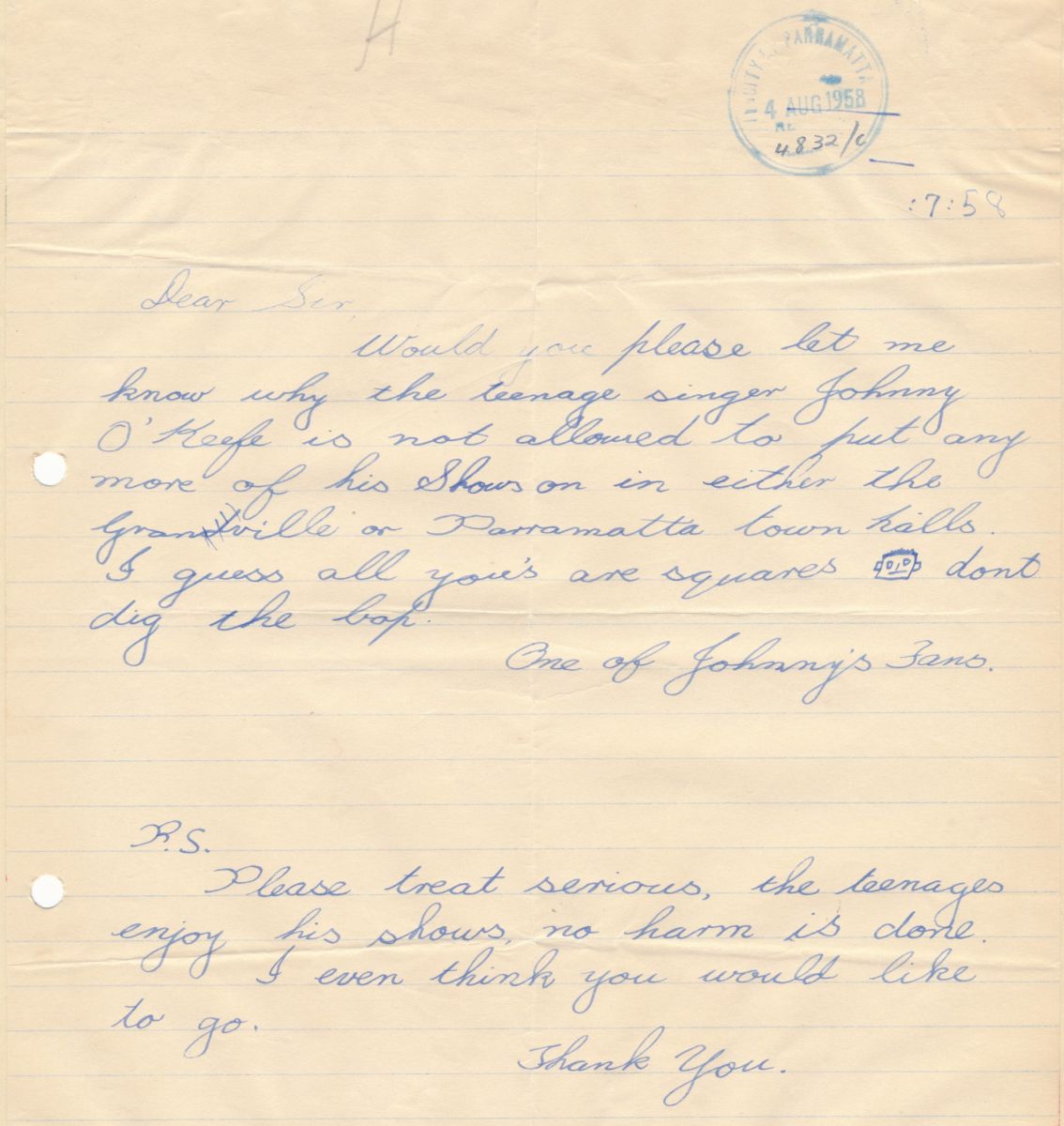
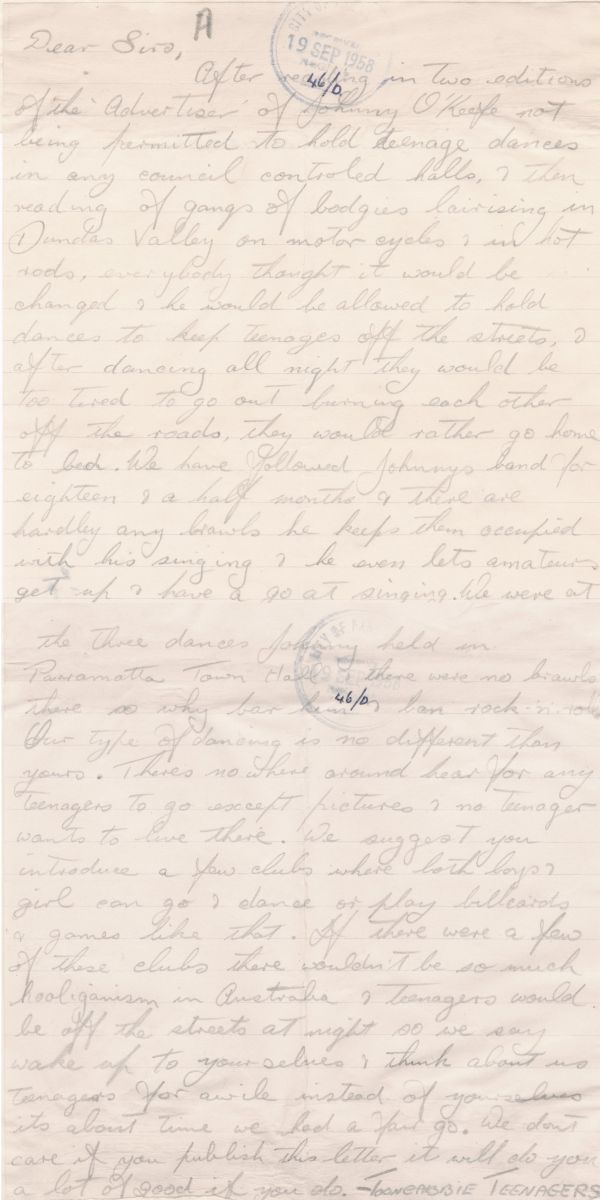
The 'bodgies' referred to in this letter were part of the Australian subculture, the 'bodgies and widgies.'
Despite the protests, there would be no rock-‘n-roll music heard within the walls of any of the Council’s town halls for the next year. This all changed in October 1959 when 18-year-old Phil Wilde of local band Phil Wilde and the Wildecats wrote to the Council and requested permission to hold a trial dance.
In his letter to the Council, Phil Wilde outlined a set of strict conditions that would accompany the Wildecats' rock-‘n-roll dance, namely: a limit of 500 people to be admitted to the hall with tickets to be numbered, no smoking, liquor or offensive behaviour, two ticket takers to be at the main doors, and three capable men to patrol the crowd in the hall. A good standard of dress was to be maintained and dancing barefoot not permitted, and any profits from the trial dance were to be donated to a charity named by the Council.
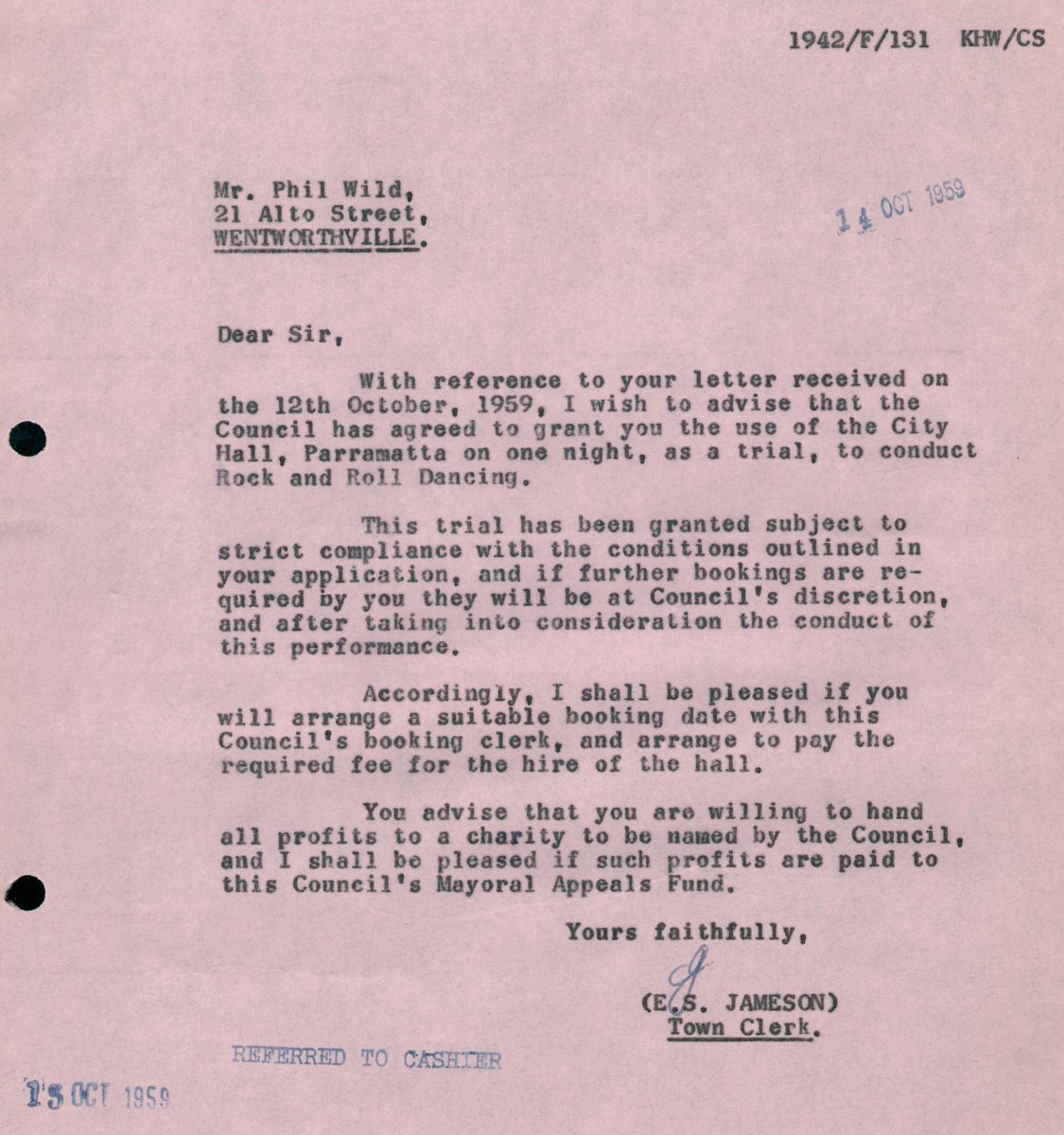
The trial night turned out to be a success and a second concert was held by Phil Wilde and the Wildecats, with a reported 200 teenagers in attendance at each. By the 19th November 1959, the front page of The Cumberland Argus stated that teenage rock-‘n-roll was within an ace of becoming established in Parramatta, all thanks to Phil Wilde’s efforts to change the hearts of the “City Fathers.”
By the 23rd November, a Council resolution was passed to allow Phil Wilde and the Wildecats to host a regular rock-‘n-roll dance at Parramatta Town Hall every Wednesday night. This also opened a gateway for other local rock-‘n-roll bands to request permission to hire the hall for dances. Even with the popularity of shows like Six O'Clock Rock (premiering in February 1959) making the genre more widely accepted, the Council still used a modified set of Phil Wilde’s original conditions as rules for all rock-‘n-roll hirers:
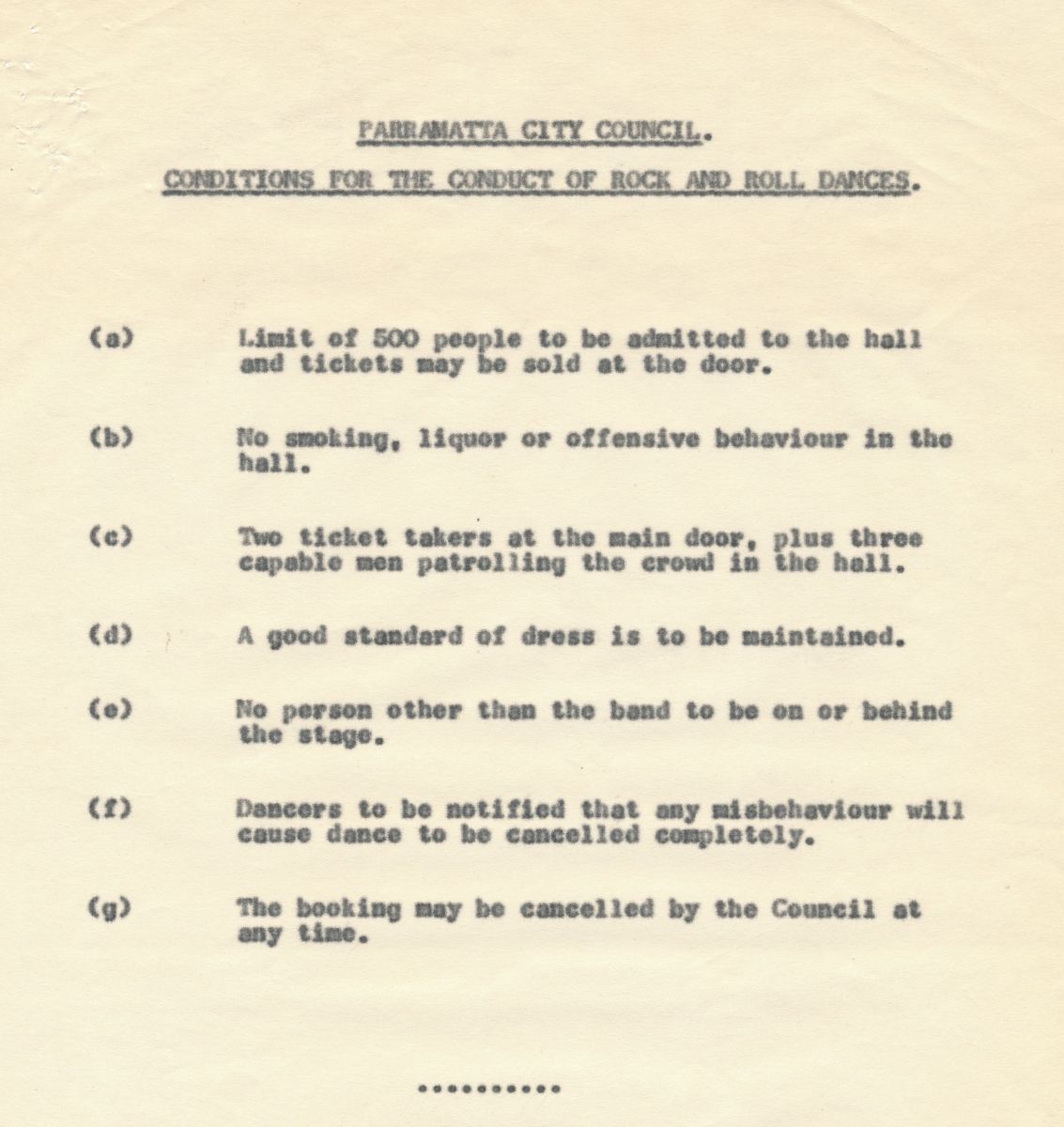
Phil Wilde and the Wildecats would go on to host many rock-‘n-roll dances in the Parramatta Town Hall between 1959 and 1960:
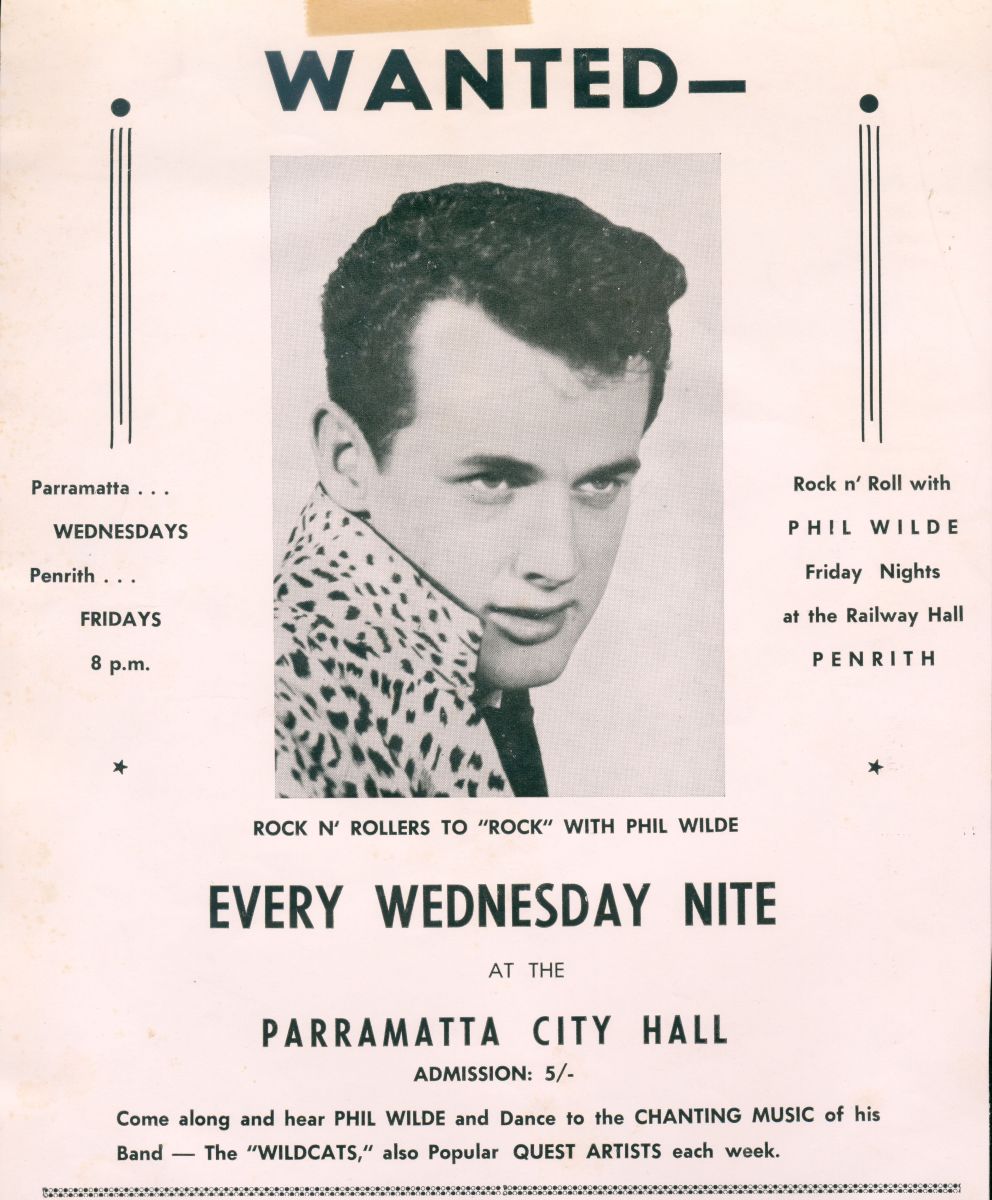
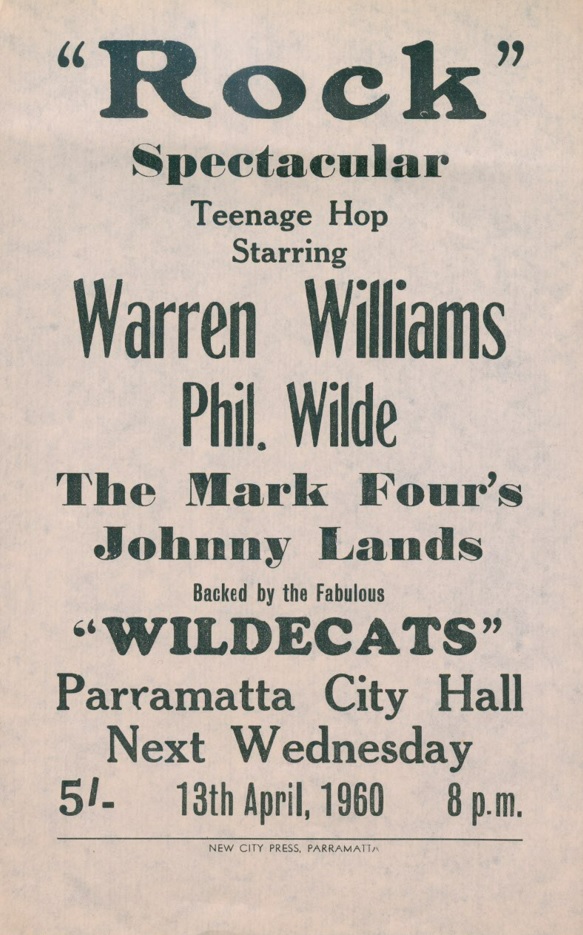
While the band was able to maintain a good reputation with the Council, other hirers of Parramatta Town Hall for rock-‘n-roll dances weren’t so lucky. By March 1960, brawls had been breaking out at dances held on other nights and the Council had once again cancelled all future rock-‘n-roll events.
Phil Wilde and the Wildecats were an exception to this rule, but 1960 would be the last year they performed in Parramatta Town Hall. In the 2019 book Phil Wilde and the Wildecats: Our story in pictures and text, after a new band manager’s cheques didn’t clear for the band’s hire of the hall, future use of the space was put on hold by the Council. With their band manager fired and Wednesday nights at Parramatta Town Hall not a viable option, Phil Wilde instead looked toward establishing a Teen Club at the Parramatta School of Arts. The Teen Club would provide live concerts three nights a week; and would have pinball machines and juke box music available on the other four nights.
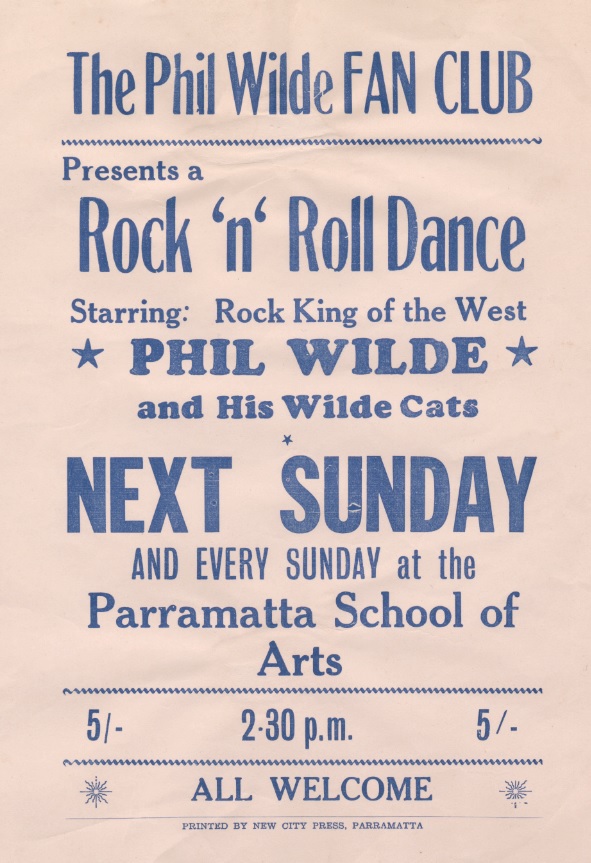
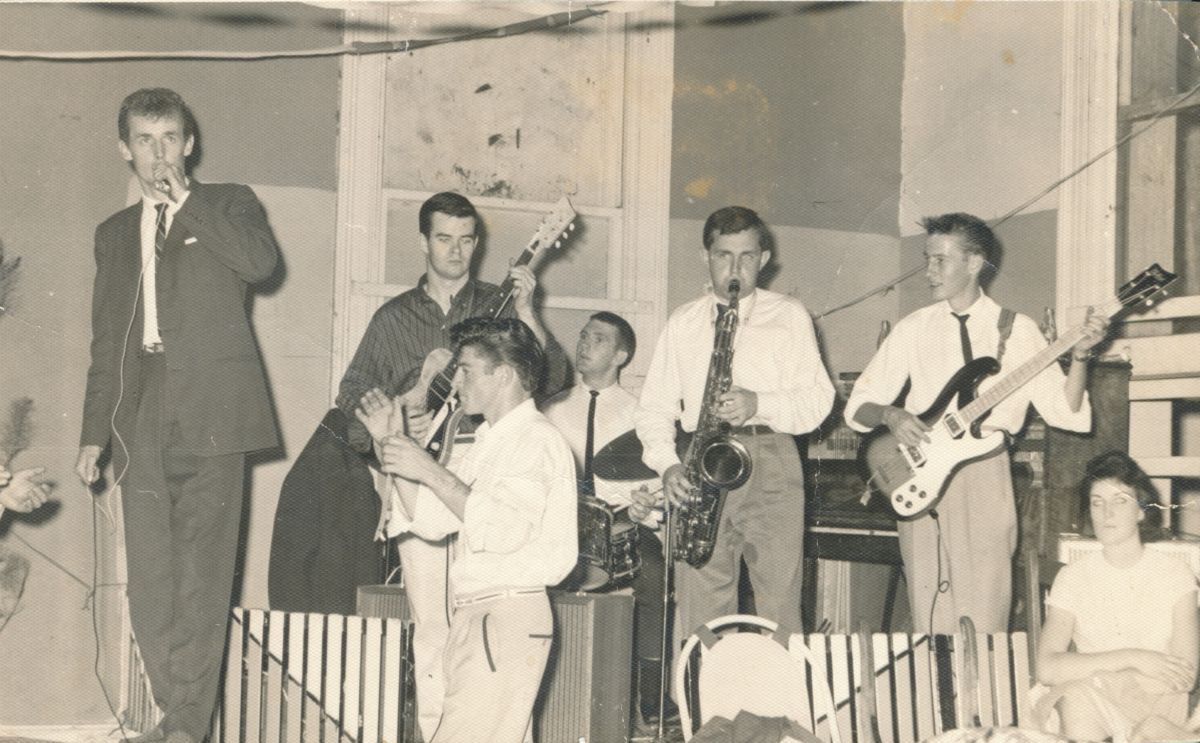
In addition to Parramatta, Phil Wilde and the Wildecats performed across Quakers Hill, Wentworthville, Penrith and Ryde. The band worked with The Crescents, Warren Williams, and the Mark 4’s, and regularly had guests at their dances such as Rob E G, Laurel Lea and Digger Revell. Phil Wilde and the Wildecats would go on to undertake a Great Western Tour, audition for Festival Records, and feature in TV Week. The impact and history of Phil Wilde and the Wildecats as a Western Sydney rock-'n-roll band is another story to be told.
One thing is for sure though, it’s thanks to Phil Wilde’s efforts that teenagers had the right to rock and roll in Council owned halls in the Parramatta LGA.
![]()
Paige Davis, Heritage Archivist, 2023.
Select Bibliography
“What was the first Australian rock and roll Record?” Australian Broadcasting Corporation, https://www.abc.net.au/listen/radionational/archived/rarecollections/first-australian-rock-and-roll-record/4931960 (Last Accessed: 16/11/2023.)
“The Young Ones: Bodgies and Widgies,” Australian Broadcasting Corporation, https://www.abc.net.au/listen/programs/hindsight/the-young-ones----bodgies-26-widgies/4109816 (Last Accessed: 15/11/2023.)
City of Parramatta Heritage Archives: PRS21; PRS21/028.
City of Parramatta Heritage Archives: PRS133; 131/7, 131/8 & 131/9.
City of Parramatta Heritage Archives: PRS137; 132/3.
“The Wild One by Johnny O'Keefe – Australia's first rock'n'roll hit,” The Guardian, https://www.theguardian.com/music/australia-culture-blog/2014/sep/30/the-wild-one-by-johnny-okeefe-australias-first-rocknroll-hit (Last Accessed: 21/11/2023.)
“Bodgies, widgies and moral panic Australia 1955 – 1959,” Paper presented to the Social Change in the 21st Century Conference, Dr. Keith Moore, School of Humanities and Human Services, Queensland University of Technology.
Phil Wilde and the Wildecats: Our story in pictures and text from 1958 to 1961 plus the 1976 revival. Phillip Weidemier, Baulkham Hills, April 2019.



A superstar before his time.
So proud of Phil & his music history.
A wonderful guy - now in his 80's.